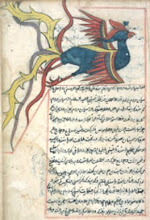Ascension
It is a weekend of ascension and seawater.
Your face still haunts me.
She shows her face and all I see is love.
The beacon of my heart
is governed by mysterious
drowning things. Even
her laughing, serious,
fighting, sonnet movements.
Once there was an Eastern
frontier at the Eastern Cape.
A Kat River Settlement. Khoi.
Four wars were fought there
between the Xhosa and the
settlers but that’s history.
Men were like twisting flame.
The sermon of the major
earth is serene now. It’s a
winter sky and a winter rain
that gathers overhead from
eternity to the hereafter. The
faded call of unsung sorrow.
You mum belong to a barefoot
people. The terror of the
Pacific when it comes to your
tribe of children. You taught
me to lead and not to follow.
You were the skilled expert
when it came to my rage. I
only have to say that I am hungry
and my mother feeds her cub.
The continuous noise inside
my head goes away but not the
memory of my mother’s forehead.
Her astonishingly beautiful
African violets. The scene of
luscious green grass from childhood
forgotten. Her face is still
hauntingly beautiful. You, who
taught me how to write about everything I know.
To see the world around me.
- Abigail George 2016
Abigail George briefly studied film at the Newtown Film and Television School in Johannesburg. Some of her poems have appeared in and are forthcoming from Birds Piled Loosely, Hamilton Stone Review, Literary Orphans, The Writing Disorder, Toad Suck Review, Vigil Pub Mag. Some of her stories have appeared in and are forthcoming in Spontaneity, Hackwriters Magazine, Ovi Magazine: Finland’s English Online Magazine, and Africanwriter.com. She is the recipient of grants from the National Arts Council in Johannesburg, Centre for the Book in Cape Town, and ECPACC (Eastern Cape Provincial Arts .














